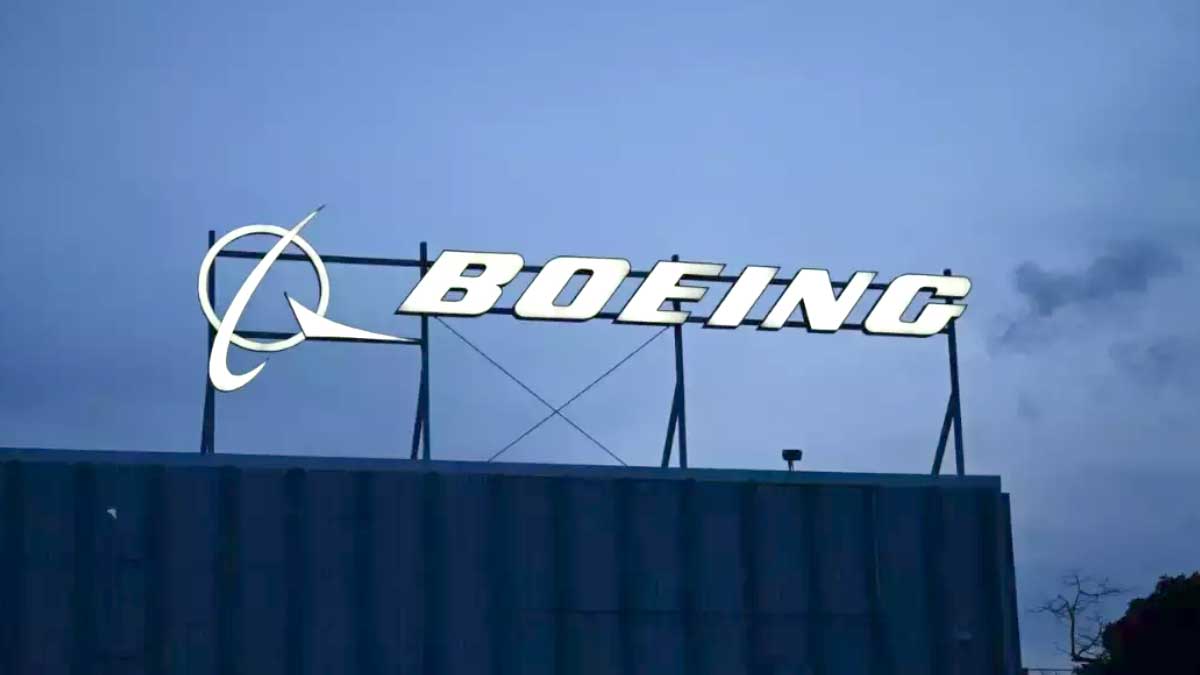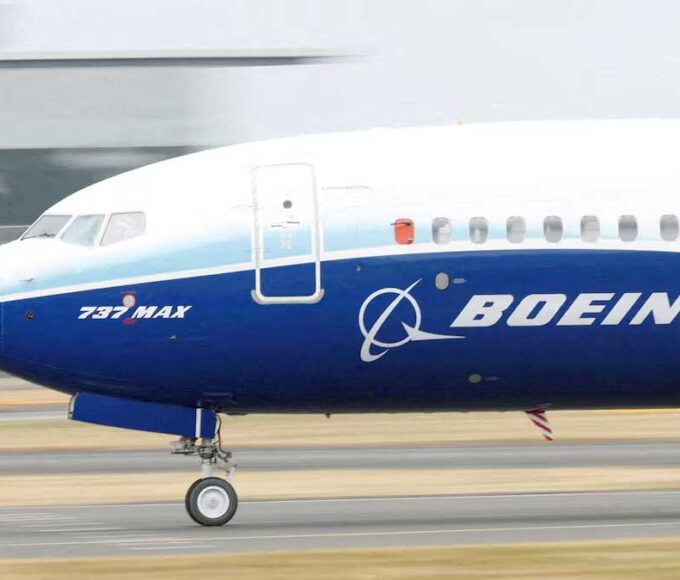- Home
- Billionaires
- Investing Newsletters
- 193CC 1000
- Article Layout 2
- Article Layout 3
- Article Layout 4
- Article Layout 5
- Article Layout 6
- Article Layout 7
- Article Layout 8
- Article Layout 9
- Article Layout 10
- Article Layout 11
- Article Layout 12
- Article Layout 13
- Article Layout 14
- Article Sidebar
- Post Format
- pages
- Archive Layouts
- Post Gallery
- Post Video Background
- Post Review
- Sponsored Post
- Leadership
- Business
- Money
- Small Business
- Innovation
- Shop
Recent Posts
Boeing Reaches Tentative Labor Deal, Averts Strike

Boeing has managed to avert a potentially costly labor strike by reaching a tentative agreement with a workers’ union representing over 33,000 employees. This deal comes at a critical time for the aerospace giant, which has faced significant turbulence in recent years due to safety concerns, legal battles, and financial instability. The agreement includes notable concessions and commitments that may help stabilize the company and restore its reputation after a series of highly publicized failures.
The tentative deal, negotiated with the International Association of Machinists District 751, includes a 25% wage increase spread over four years and a reduction in healthcare costs for workers. The wage increase is seen as a major victory for the union, as it addresses long-standing concerns about fair compensation in the face of inflation and rising living costs. Meanwhile, Boeing’s agreement to reduce workers’ healthcare contributions further sweetens the deal, addressing another key point of contention.
In addition to these financial benefits, Boeing has made a significant pledge regarding the future of its manufacturing operations. The company promised to build its next major aircraft in Washington state’s Puget Sound region, contingent on the ratification of the new contract. This commitment is especially significant given the company’s recent shift in production to South Carolina, where labor costs are lower. Boeing’s decision to retain some of its operations in the Puget Sound area is seen as a nod to the union’s demands and a strategic move to maintain labor peace at a critical juncture. This region has long been Boeing’s main hub for its commercial jets, and the promise to keep building in the area is seen as a win for workers and the local economy.
Negotiations for this deal were intense, lasting for weeks, and culminated in the early morning hours of Sunday. The timing was crucial, as Boeing’s current contract with the union was set to expire on September 12. Without a new contract, the union members had been preparing to strike, which could have created a significant disruption to Boeing’s operations. The tentative deal is expected to be voted on by the union’s members later this week, with the leaders of the union strongly recommending approval. The outcome of this vote will determine whether Boeing can continue its operations without the threat of a strike looming over its head.
This labor agreement comes as Boeing faces what can only be described as a challenging period in its history. The company has struggled to overcome the fallout from several high-profile safety issues, most notably concerning its 737 MAX aircraft. The 737 MAX made headlines following two fatal crashes in 2018 and 2019 that were attributed to a faulty flight control system. These incidents resulted in the plane being grounded worldwide for over a year, damaging Boeing’s reputation and sparking investigations into the company’s practices. The federal investigations that followed eventually led to Boeing agreeing to a deal to plead guilty to fraud charges earlier this year, further tarnishing its public image.
The 737 MAX has continued to face issues even after being cleared for flight. Earlier this year, a mid-flight incident involving an Alaska Airlines 737 MAX occurred when a panel blew off the aircraft. The investigation that followed revealed that the plane was missing four critical bolts, reigniting concerns about the quality of Boeing’s manufacturing and contractor oversight. As a result, nearly 200 planes were grounded, and an extensive inquiry was launched into Boeing’s production standards. These ongoing issues with the 737 MAX have contributed to a broader crisis of confidence in the company’s ability to ensure the safety and reliability of its aircraft.
Boeing’s troubles extend beyond its commercial aircraft division. The company’s Starliner spacecraft, developed by Boeing’s space division, has also encountered significant challenges. The spacecraft experienced thruster malfunctions and helium leaks during docking attempts, leading to the mission’s crew being stranded on the International Space Station for more than two months longer than initially planned. The astronauts involved in the mission remain in space, although the Starliner itself has since returned to Earth. These issues with the Starliner have only added to the perception that Boeing is struggling to maintain its technological edge across its various divisions.
Financially, Boeing has faced a difficult year. Despite strong sales last year, the company has reported weak orders for its planes in recent months. In May, for example, Boeing received just four new orders for its 787 Dreamliner and none for its 737 MAX, according to reports. This downturn in orders is largely attributed to the lingering safety concerns and the production quality issues that have plagued the company for years. Boeing has also been the subject of multiple investigations into its manufacturing processes, further complicating its efforts to regain the trust of its customers and regulators.
In the face of these challenges, Boeing has recently undergone significant leadership changes. The company replaced its CEO in an effort to steer the business in a new direction and to rebuild its reputation within the aerospace industry. The new leadership team is tasked with not only addressing the ongoing operational issues but also with rebuilding relationships with regulators, customers, and labor unions.
The tentative labor agreement reached this week represents a significant step forward for Boeing, providing the company with some much-needed stability as it navigates its way through these turbulent times. By avoiding a strike and committing to improving the terms for its workers, Boeing may have bought itself some breathing room to address its broader challenges. However, the outcome of the union vote on Thursday will be crucial. If the deal is approved, Boeing can continue its operations without interruption. If the deal is rejected and a strike proceeds, the company could face yet another significant setback in its already difficult year.
All eyes will be on the union vote as Boeing looks to secure the future of its operations and work toward restoring its place as a leader in the aerospace industry.
Recent Posts
Categories
- 193 Countries Consortium Partner1
- 193cc Digital Assets2
- 5G1
- Aerospace & Defense48
- AI37
- Arts3
- Banking & Insurance11
- Big Data3
- Billionaires1,467
- Boats & Planes1
- Business332
- Careers13
- Cars & Bikes79
- CEO Network1
- CFO Network17
- CHRO Network1
- CIO Network1
- Cloud10
- CMO Network18
- Commercial Real Estate7
- Consultant1
- Consumer Tech194
- CxO1
- Cybersecurity73
- Dining1
- Diversity, Equity & Inclusion4
- Education7
- Energy8
- Enterprise Tech29
- Events11
- Fintech1
- Food & Drink2
- Franchises1
- Freelance1
- Future Of Work2
- Games149
- GIG1
- Healthcare79
- Hollywood & Entertainment203
- Houses1
- India’s 1000 Richest1
- Innovation46
- Investing2
- Investing Newsletters4
- Leadership65
- Lifestyle11
- Manufacturing1
- Markets20
- Media327
- Mobile phone1
- Money13
- Personal Finance2
- Policy569
- Real Estate1
- Research6
- Retail1
- Retirement1
- Small Business1
- SportsMoney42
- Style & Beauty1
- Success Income1
- Taxes2
- Travel10
- Uncategorized14
- Vices1
- Watches & Jewelry2
- world's billionaires1,436
- Worlds Richest Self-Made Women2
Related Articles
2025: A Crucial Year for Boeing’s Recovery and Future
The coming year will be critical for Boeing as it strives to...
By 193cc Agency CouncilDecember 28, 2024Friendly Fire and Drone Threats Disrupt Global Airspace
Over the past week, three very different incidents have drawn attention to...
By 193cc Agency CouncilDecember 27, 2024Universe Expanding Faster Than Expected, New Data Shows
Recent findings from the James Webb Space Telescope (JWST) have confirmed something...
By 193cc Agency CouncilDecember 10, 2024Russian Soldier Life Expectancy: One Month Amid Losses
In the ongoing war between Russia and Ukraine, a stark reality faces...
By 193cc Agency CouncilNovember 29, 2024















Leave a comment